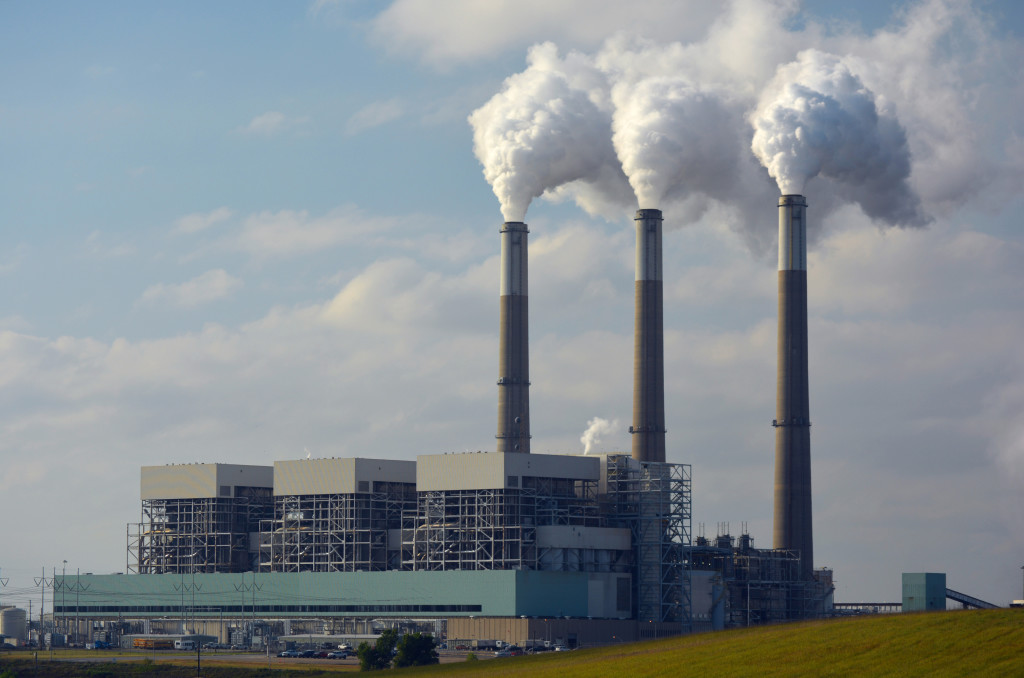Kimberly Adams: Energy stance, secrecy show; why Energy Alabama can’t be taken seriously

Facts are stubborn things. The fact, for example, that electric utilities nationwide have begun to rely more on natural gas as a fuel source. Why? Because the U.S. has the world’s largest reserves of natural gas and because federal regulations and the marketplace have caused many coal-fired power plants to close in recent years. Alabama is no exception. Alabama Power Company shuttered one of its oldest coal-fired facilities, Plant Gorgas, in 2019. PowerSouth closed a major coal-fired operation, Lowman, the same year. TVA, which serves much of north Alabama, closed its Widows Creek Fossil Plant in Stevenson in 2015 and its Colbert Fossil Plant in Tuscumbia the year after. With coal use down, the three utilities that produce power in Alabama have all relied more heavily on natural gas. But one group, the Huntsville-based Energy Alabama, doesn’t like that. On Twitter recently, Energy Alabama criticized Alabama Power for having “no plans to shutter any of its coal plants.” In a tweet, we reminded Energy Alabama that not only has the state’s largest utility recently closed a coal-fired plant but that Energy Alabama actually intervened at the Alabama Public Service Commission to try to block Alabama Power from using more natural gas. You can’t have it both ways. After all, something has to power Alabama homes and businesses. Energy Alabama’s reply should shock Alabama lawmakers. “All coal in Alabama is uneconomic. Yes, we want to shut it down,” Energy Alabama tweeted back. “We like energy that is cost-effective. Coal and gas ain’t it.” The group’s founder, Daniel Tait, has made it no secret he favors more solar power. But what is a secret is who pays Tait for his unrelenting criticism of electric utilities in Alabama and across the Southeast. In an article from this past September, Alabama Today speculated that Tait might be paid by the solar industry. The truth is no one knows who pays Daniel Tait to lobby against natural gas and coal. Alabama’s Secretary of State, John Merrill, asked him directly in April 2020, but Tait has refused to answer. Records show that Energy Alabama does not currently pay Tait. The other entity with which Tait is associated, the Energy & Policy Institute, does not appear to be incorporated with the federal government or any state, raising a very serious question about who puts money in Daniel Tait’s pocket. It also raises the question of why any lawmaker, whether in Alabama or elsewhere, should take him or his positions seriously. Fortunately, light could soon be shed on the matter. Daniel Tait’s counterpart in Florida, Alissa Schafer, is currently the subject of an investigation by the Florida Ethics Commission over the source of her income. As a public official, Schafer listed the Energy & Policy Institute as a source of income even though the group doesn’t legally exist. Ethics officials found that worthy of scrutiny, with Schafer’s initial hearing set for March 5th in Tallahassee. Lawmakers should have serious suspicions about any group that wants to completely abandon two fuel sources, natural gas and coal, that today produce 62% of the electricity America uses. Officials also have a right to know who is paying the people advocating for such a position, one that would no doubt make electricity less affordable and reliable. Hopefully, the developing ethics investigation will shed light on whether for-profit solar companies are behind the work of Daniel Tait and give lawmakers proof positive that Tait and his affiliates have never been about sticking up for Alabamians, but about pushing a hidden agenda that hurts jobs and customers. Kim Adams is Executive Director of Jobkeeper Alliance, which is devoted to protecting existing quality jobs, working to create valuable new jobs, and combating misinformation that affects public policy.
More questions arise about the Energy & Policy Institute

The Energy and Policy Institute (EPI), a California based group that has been active in Alabama, has participated in many official state and federal functions in recent years around environmental and energy policy. They have been cited as experts on climate and energy policy and are often quoted and sourced in articles and journals. However, numerous entities have raised questions around the group’s legality after finding the organization doesn’t appear to exist in any official state or federal records. Last week, Jobkeeper Alliance filed an ethics complaint in Florida against Alissa Jean Schafer for receiving income from the Energy and Policy Institute. Schafer is the Seat 4 Supervisor of the Broward Soil and Water Conservation District as well as a Research and Communications Specialist for EPI. Public officials in the state of Florida must disclose where their income comes from so that the public is informed if there is a conflict of interest. Schafer has included income received from EPI in her financial disclosure report. But Jobkeeper Alliance believes this is a violation considering there are no records of EPI having any business or non-profit status in any state. JobKeeper Alliance also points to the irony of a watchdog group that is itself funded by “dark money” to the extent that there is no record of them and points to their funding possibly coming from Chinese and US solar interests. Alabama Secretary of State John Merrill previously inquired as to the legality of EPI’s business as well. In April 2020, Merrill sent a letter to Daniel Tait, Research and Communication Manager for EPI, and David Pomerantz, another member of the group. In the letter, Merrill questions the transparency and legal status of the group and who pays Tait. Merrill asks three specific questions of the group: What is the legal status of the Energy and Policy Institute? Who funds your organization’s work? If you are funded, as spokesperson David Pomerantz has said publicly, “by environmental foundations interested in addressing the threat posed by climate change,” who are those foundations and to whom are they giving their contributions? Who compensates the numerous individuals like Mr. Tait, who work for the Energy and Policy Institute and who are listed on your group’s reports? According to Grace Newcombe, press secretary for Merrill, no response has been received from any correspondence sent to EPI. “The public deserves to know who pays the salaries of Alissa Schafer, Daniel Tait, and the many others who work under the name Energy and Policy Institute,” said Kimberly Adams, Executive Director of the Jobkeeper Alliance. “If the group really values transparency, it can start by answering the simplest of questions: who are they, and who pays for their work?” These recent inquiries are not the beginning of the investigation into EPI. In 2017, the Campaign for Accountability wrote a report on the Energy and Policy group. According to the report, “EPI is a dark money group: it does not appear to have non-profit status, it is not registered with any relevant secretary of state, and no one admits to funding it. It appears that EPI may be simply the creation of a public relations firm.” The firm the report references, Tigercomm, represents some of the largest solar companies and manufacturers in the world, including the world’s largest solar panel manufacturer, China’s Trina Solar. In an opinion piece the same year, Daniel Stevens stated, “Despite its opaque background, journalists tend to cover EPI’s findings and quote its employees as they would any non-profit. Popular Science, for example, recently interviewed EPI’s executive director about climate change in Dubai and referred to the organization as a watchdog group without further comment.” According to the group’s website, EPI is a watchdog organization that “exposes attacks and deception by fossil fuel companies, utilities, their trade associations and front groups through investigative research and analysis.” They claim to not receive any funding from corporations, trade associations, or governments. Their website goes on to list a number of employees, including Alissa Jean Shafer and Daniel Tait. This morning Alabama Today reached Schafer on her personal cell number to ask her about the ethics complaint. She asked that we email her our questions, which we obliged. When asked for her email, she provided an email address from the EPI. Below are the questions we posed so that she could clarify her involvement in this organization. 1. How long have you been associated with EPI, and how did you learn about the group? 2. Your financial disclosure references income from EPI. Are you a 1099 independent contractor for the organization or a full-time employee? 3. Our research, along with research from Alabama Secretary of State John Merrill indicates the organization has not filed as a legal business or non-profit entity in any state or federal database. Are you able to locate and provide a legal business address and EIN number for the organization that would appear on a paycheck or tax document? 4. If not paid directly from EPI, can you identify who has been paying you, and will you change your financial disclosure report to reflect that? At the time of publishing, Ms. Schafer had not responded to the email inquiry or our follow-up text.


